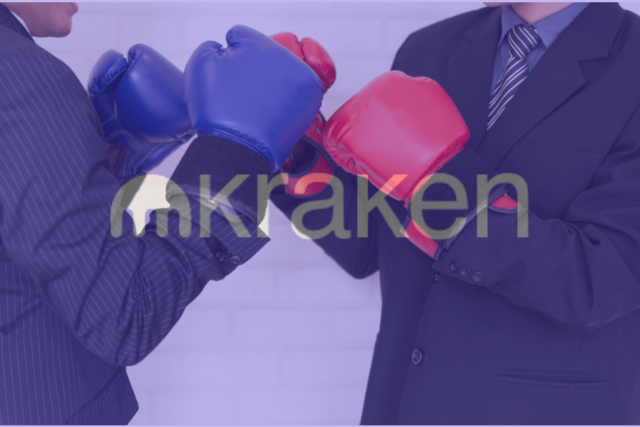The ongoing legal battle between Kraken and the U.S. Securities and Exchange Commission (SEC) intensified this week after a federal judge ruled that the crypto exchange must face charges of operating as an unregistered securities platform. The ruling marks a significant development in the SEC’s broader effort to bring crypto platforms like Kraken under regulatory control. While this decision allows the case to move forward, Kraken’s legal team argues that the ruling lacks clarity. Do digital assets, such as those traded on Kraken, actually qualify as securities?
The Central Issue: Are Kraken’s Crypto Transactions Securities?
The SEC’s case against Kraken hinges on whether certain cryptocurrencies, including well-known assets like Cardano (ADA) and Solana (SOL), should be classified as securities under U.S. law. According to the SEC, Kraken’s failure to register as a securities exchange exposes investors to unnecessary risks. Allegedly, they are bypassing essential regulatory safeguards, including protections against fraud and mismanagement of assets. The agency is applying the Howey Test, a legal standard used for decades to determine whether a transaction involves an investment contract. The SEC’s position is that the activities conducted on Kraken’s platform meet this threshold, making them subject to securities laws.
Despite the ruling, Kraken’s legal team remains defiant. They argue that the court’s decision does not definitively categorize the tokens as securities. Instead, it focuses on the broader context of how the exchange markets and sells these assets. This distinction is crucial as it could determine to which extent the SEC can regulate digital assets going forward.
>>> Read more: Kraken Faces Legal Storm
Innovation vs. Regulation: The Crypto Industry’s Growing Concerns
The Kraken crypto SEC dispute has broader implications beyond this single case. Many in the cryptocurrency industry believe the SEC’s aggressive regulatory stance threatens to stifle innovation and drive technological advancements offshore. The ruling highlights the tension between using established legal frameworks like the Howey Test and adapting to the rapidly evolving nature of blockchain technology and decentralized finance (DeFi).
Marco Santori, Kraken’s Chief Legal Officer, noted that the court’s decision mirrors aspects of the recent Ripple case. It drew similar lines between the classification of tokens and the agreements surrounding them. Santori emphasized that the real challenge for the SEC will be proving that each transaction involving Kraken’s crypto offerings meets the criteria of the Howey Test. This technical debate could shape how digital assets are regulated in the future.
The Regulatory Landscape: What’s Next for Kraken and the Crypto Market?
Kraken is not the only exchange facing pressure from regulators. The SEC has initiated lawsuits against other major platforms like Binance and Coinbase, signaling a comprehensive effort to assert control over the crypto market. SEC Chair Gary Gensler repeatedly stated that most digital assets should be classified as securities. Exchanges like Kraken would therefore be required to register under existing securities laws. This broader crackdown suggests that more crypto platforms may soon find themselves in similar legal battles.
Critics of the SEC’s approach argue that applying the Howey Test – a framework designed for traditional financial instruments – fails to account for the unique characteristics of digital assets. It is a framework designed for traditional financial instruments. Imposing outdated rules might cost the U.S. its competitive edge in the global cryptocurrency market. These regulatory decisions could push innovation out of the country, favoring jurisdictions with more flexible approaches to crypto.
Conclusion: A Defining Moment for Kraken and U.S. Crypto Regulation
The crypto industry watches closely as Kraken prepares for a potentially precedent-setting trial. The outcome could either reinforce the SEC’s authority or prompt a reevaluation of how digital assets should be regulated. The stakes are high, not only for Kraken but for the broader ecosystem of blockchain technology and decentralized finance. Whether the U.S. will continue to be a hub for crypto innovation or face an exodus of blockchain projects largely depends on how the courts resolve cases like this.
As the battle between Kraken crypto exchange vs. SEC unfolds, the fundamental question remains: Can regulatory frameworks developed decades ago adapt to the complexities of digital assets, or is it time for a new legal paradigm in the crypto market?
Readers’ frequently asked questions
What is the Howey Test, and how does it relate to the Kraken case?
The Howey Test is a legal framework used in the U.S. to determine whether certain transactions qualify as investment contracts and, therefore, securities under the law. Established by a 1946 Supreme Court case (SEC v. W.J. Howey Co.), the test applies if an investment is made with an expectation of profits derived from the efforts of others. In the context of the Kraken case, the SEC argues that the crypto assets traded on Kraken’s platform meet these criteria. The court’s reliance on the Howey Test is central to determining whether Kraken’s crypto transactions fall under the SEC’s jurisdiction. Kraken disputes this stance as outdated for modern digital assets. The broader crypto industry is watching closely because the application of this test could set new precedents for how digital assets are regulated.
Why does the SEC believe Kraken should be considered an unregistered securities exchange?
The SEC’s case against Kraken is based on the assertion that certain cryptocurrencies traded on its platform, such as Cardano (ADA) and Solana (SOL), qualify as securities under the Howey Test. The SEC claims that by offering these digital assets without proper registration, Kraken operates as an unregistered securities exchange, broker-dealer, and clearing agency. The SEC argues that this lack of registration deprives investors of critical protections typically required in traditional securities markets, such as preventing fraud, managing conflicts of interest, and ensuring accurate recordkeeping. Kraken, however, disputes this characterization, arguing that the tokens themselves are not securities. Applying securities regulations to decentralized digital assets is a legal overreach in their legal opinion.
What are the potential consequences if Kraken loses the case?
If Kraken loses the case, it could face severe penalties, including fines and potential operational restrictions. It could force the platform to alter its business model significantly. The case’s outcome could also have broader implications for the cryptocurrency industry. A ruling in favor of the SEC would likely embolden the agency to pursue similar actions against other exchanges, increasing the regulatory burden on crypto platforms operating in the U.S. Such a precedent could drive innovation out of the U.S., pushing blockchain startups and exchanges to relocate to more crypto-friendly jurisdictions. On the other hand, a win for Kraken could limit the SEC’s ability to regulate digital assets. That would bring more regulatory clarity and a less restrictive environment for crypto companies.
What Is In It For You? Action Items You Might Want to Consider
Explore Arbitrage Opportunities
With the ongoing legal pressure on Kraken and other exchanges, market reactions can create price discrepancies between platforms. This could be a prime moment to leverage arbitrage strategies, where you buy an asset on one exchange and sell it on another where the price is higher. Keep a close eye on how different markets react to the news. Be ready to execute swiftly for potential profits.
Test the Waters with Low-Risk Crypto Derivatives
As regulatory clarity evolves, so will market sentiment. Consider exploring low-risk derivatives, like options or futures, tied to assets potentially affected by the case. This lets you speculate on price movements without fully exposing your capital. Given the uncertainty, this approach offers more flexibility in rapidly changing conditions while providing a hedge against unfavorable outcomes.
Short the Market (But Be Cautious)
If you believe the SEC case against Kraken will lead to a broader downturn in the crypto market, you might explore shorting opportunities on certain tokens or assets that are likely to be affected. However, this strategy comes with high risk, so ensure you have a solid risk management plan in place. This tactic can be particularly potent in a volatile market environment like the one currently influenced by regulatory uncertainty.











[…] >>> Read more: Kraken Under Fire: Is the SEC Overreaching on Crypto? […]